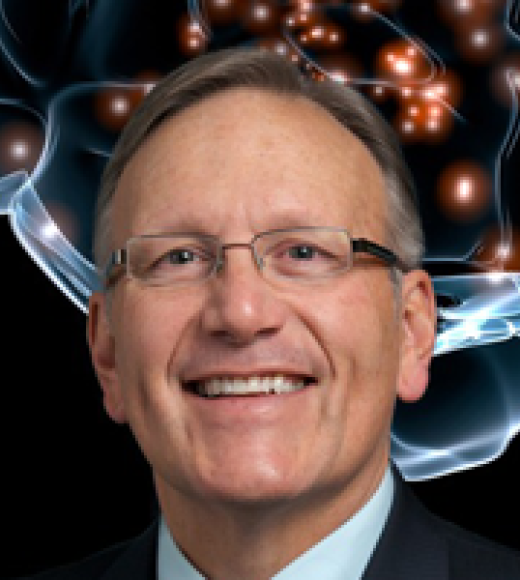
Position Title
Distinguished Professor of Psychology and Neurology
Education
- Ph.D., Neurosciences, University of California, San Diego, 1987
- B.S., Chemistry (and Life Sciences), Northern Arizona University, 1981
About
George R. Mangun is the founding and currently Co-Director of the UC Davis Center for Mind and Brain, and Distinguished Professor of Psychology and Neurology at the University of California, Davis. In 1998 he was the founding director of the Duke University Center for Cognitive Neuroscience, and then in 2002 founded the UC Davis Center for Mind and Brain. From 2008 to 2015 he served as UC Davis Dean of Social Sciences. He leads the Laboratory for the Neural Mechanisms of Attention, which is supported by grants from NSF, NIH, and corporate and foundation partners. Professor Mangun has consulted on numerous university, U.S. government and international scientific panels and advisory boards, including for the National Institutes of Health, the National Science Foundation, the National Academy of Sciences, the National Research Council, the Department of Defense, the European Research Council (European Union), the Academy of Finland, the Ministry of Higher Education and Research of the Basque Government (Spain), and the Max Planck Society (Germany). He is coauthor of the leading textbook, Cognitive Neuroscience: The Biology of the Mind (W.W. Norton, 2019); now in its fifth edition, the book has been translated into French, Italian, Portuguese and Chinese. Professor Mangun was a Senior Editor of the Journal of Cognitive Neuroscience, the Editor of Cognitive Brain Research, a Senior Editor for Brain Research; he is currently the founding Editor-in-Chief for Frontiers in Cognition, and is a member of the Governing Board of the Cognitive Neuroscience Society.
Research Focus
Professor Mangun's work on the neuroscience of attention investigates how we perceive, attend, ignore and become aware of events in our environment. Recordings of brain electrical activity (EEG) in healthy persons and special patient groups provide high temporal resolution measures of stimulus processing in the human brain. The goal of this research is to identify the mechanisms of attentional selection by permitting sensory analysis of attended and ignored stimuli to be studied under a wide variety of task circumstances. To identify the brain systems and networks involved in attention (i.e., control and selection), tools such as functional magnetic resonance imaging (fMRI) are used in conjunction with EEG. fMRI permits the living human brain to be revealed as it functions to enable our sensations, thoughts and actions, and EEG enables the measurement of brain dynamics. The information obtained from these combined behavioral, neuropsychological, and neurophysiological studies yields insight into the computational and functional-neuroanatomical structure of human perception and cognition, and is essential for addressing the deficits in attention and awareness that accompany neurological and psychiatric disease.
Lab
Neural Mechanisms of Attention (Mangun)
Publications
- Noah, S., Meyyappan, S., Ding, M., Mangun, G. R. (2023). Time courses of attended and ignored object representations. Journal of Cognitive Neuroscience, 3:1-14. doi: 10.1162/jocn_a_01972. PMID: 36735619
- Meyyappan, S., Rajan, A., Mangun, G.R., Ding, M. (2022). Top-down control of the left visual field bias in cued visual spatial attention. Cerebral Cortex, 15:bhac402. doi: 10.1093/cercor/bhac402. Epub ahead of print. PMID: 36245213.
- Rajan, A., Meyyappan, S., Liu, Y., Samuel, I. B.H., , Nandi, B., Mangun, G.R., Ding, M. (2021). The microstructure of attentional control in the dorsal attention network. Journal of Cognitive Neuroscience. 33:6, 1-19. https://doi.org/10.1162/jocn_a_01710
- Noah S, Powell T, Khodayari N, Olivan D, Ding M, Mangun GR. (2020). Neural mechanisms of attentional control for objects: Decoding EEG alpha when anticipating faces, scenes, and tools. Journal of Neuroscience. 40(25):4913-4924. doi: 10.1523/JNEUROSCI.2685-19.2020. PMID: 32404346
- Rajan, A., Siegal, S., Liu, Y., Bengson, J., Mangun, G.R., & Ding, (2019). Theta oscillations index frontal decision-making and mediate reciprocal frontal-parietal interactions in willed attention. Cerebral Cortex, 29(7):2832-2843. doi: 10.1093/cercor/bhy149. PMID:29931088
- Liu, Y., Hong, X., Bengson, J.J., Kelley, T.A., Ding, M., & Mangun, G.R. (2017). Deciding where to attend: Large-scale network mechanisms underlying attention and intention revealed by graph-theoretic analysis. Neuroimage, 157:45-60. PMID:28554849
- Liu, Y., Bengson, J., Huang, H., Mangun, G.R., and Ding, M. (2016). Top-down modulation of neural activity in anticipatory visual attention: Control mechanisms revealed by simultaneous EEG-fMRI. Cerebral Cortex, 26(2):517-29.
- Mazaheri, A., Fassbender, C., Coffey-Corina, S., Hartanto, T.A., Schweitzer, J.B. and Mangun, G.R. (2014). Differential top-down oscillatory EEG between ADHD subtypes and typically developing adolescents. Biological Psychiatry, 76(5):422-429.
- Briggs, F., Mangun, G.R., and Usrey, W.M. (2013). Attention enhances synaptic efficacy and signal-to-noise in neural circuits. Nature, 499:476-480.
Teaching
Professor Mangun teaches in the areas of neuroscience, neurobiology and cognitive neuroscience. He has taught courses in Cognitive Neuroscience, Perception, Mechanisms of Attention, and Brain and Mind. For more than a decade beginning in 2010 he was the Director of the Kavli Summer Institute in Cognitive Neuroscience, a summer training program that brought together many dozens of faculty members from around the world to train more than 600 doctoral and postdoctoral fellows; the program was supported by NIMH, NIDA and the Kavli Foundation. Two volumes of comprehensive surveys of the field, "The Cognitive Neurosciences" (MIT Press) were produced during that period.
Awards
Among other awards, in 1993 Professor Mangun received the Distinguished Early Career Contributions Award from the Society for Psychophysiological Research. In 1999, he was honored with a Distinguished Scientist Lecturer Award by from the American Psychological Association (APA), and then held a Senior Scientist Award from the National Institute of Mental Health (NIMH) from 2001 to 2006. In 2007 he was elected a Fellow of the Association for Psychological Science (APS), and in 2010 as a Fellow of the American Association for the Advancement of Science (AAAS). In 2024 he received a Fulbright US-UK Distinguished Chair Award, and received the 2024 Award for Education in Neuroscience from the Society for Neuroscience (SfN).
